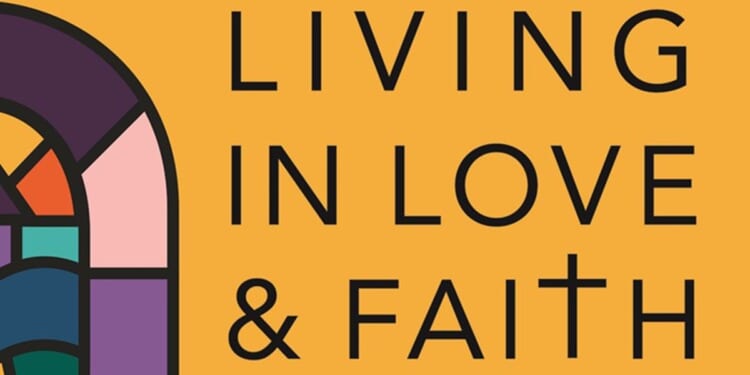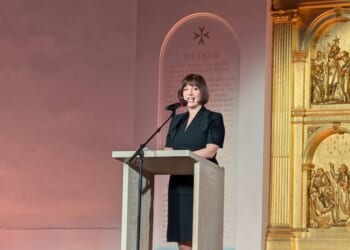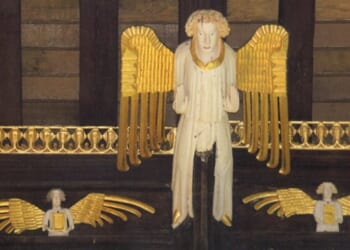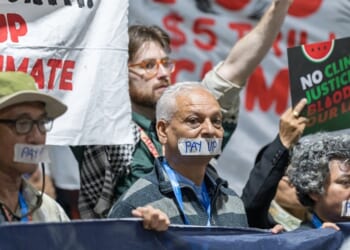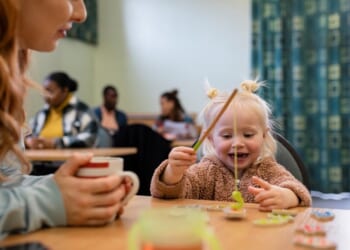BISHOPS considered the next steps in the Living in Love and Faith (LLF) process at a residential meeting this week.
During a House of Bishops meeting in Berkshire from 6-8 October, the bishops “received an update from members of the LLF working groups, members of the LLF Programme Board, and the Faith and Order Commission, along with legal advice”, a statement issued by Church House, Westminster, said.
“Bishops spent time in groups and in plenary session discussing different areas of the current LLF proposals, and the key elements which should be included in a Bishops’ Statement.
“They considered possible legislative processes. The bishops made progress, with a view to reaching final decisions, when the House next meets in December, on proposals to bring to the General Synod in February 2026,” the statement said.
The Archbishop of Canterbury-designate, the Rt Revd Sarah Mullally, previously led the LLF process, under which blessings for same-sex couples, known as the Prayers of Love and Faith (PLF), have been authorised for use in existing Church of England services.
The bishops’ further proposals are expected to cover the use of the PLF in “bespoke” services, whether clergy will be formally permitted to enter same-sex relationships, and the possibility of structural provision for those who oppose the changes.
When her nomination as the next Archbishop was announced, Canon Neil Patterson, who chairs Together for the Church of England, said that Bishop Mullally’s “wise and thoughtful leadership of Living in Love and Faith bore fruit in the initial decisions of Synod and the commendation of the Prayers of Love and Faith”.
A spokesperson for the Church of England Evangelical Council said on Friday that the announcement came “at a difficult difficult time for the Church of England”.
LLF had created “significant divisions” in the Church of England, and across the Anglican Communion there had been “a significant loss of confidence in the role of the Archbishop and a cry for leadership consonant with our Anglican doctrinal heritage [News, 3 October]”, the spokesperson said.
“We therefore pray that God will enable Bishop Sarah to hold to the apostolic faith and call the Church of England to recommit to the historic doctrines and formularies entrusted to it. We pray that this might be a moment where the current drift away from a biblical and Anglican understanding of marriage and sexual ethics is either halted or a way is found to secure biblical convictions in the Church of England for the future.”
AT THE meeting, the bishops also heard an update from the group considering the recommendations of the Makin report into the abuse perpetuated by John Smyth.
Disciplinary proceedings are already under way against a number of people criticised in the report (News, 25 February).
The bishops heard that the group, which includes survivors and independent safeguarding professionals, “will now focus on reviewing progress already made, and identifying what further work is needed to ensure full delivery”.
They also discussed a review into how members of the clergy, including the episcopate, are held accountable. A review, commissioned by the Ministry Development Board, will “provide a systematic review of accountability for bishops and other clergy to identify gaps in the current arrangements, note areas where there is a lack of clarity or ambiguity, and to identify and implement any solutions needed”, according to the Church House statement.
Other topics of discussion included ordinations, and changes expected to the number of clergy and the proportion who receive a stipend. The impact of clergy well-being on the number of people staying in ministry was considered, and it was agreed that data would be commissioned on vacancies and clergy retention.
The bishops also reflected on children, and youth and family ministry, sharing “experiences of the success of targeted leadership programmes and ways to enable families to participate in different services across different traditions”.

